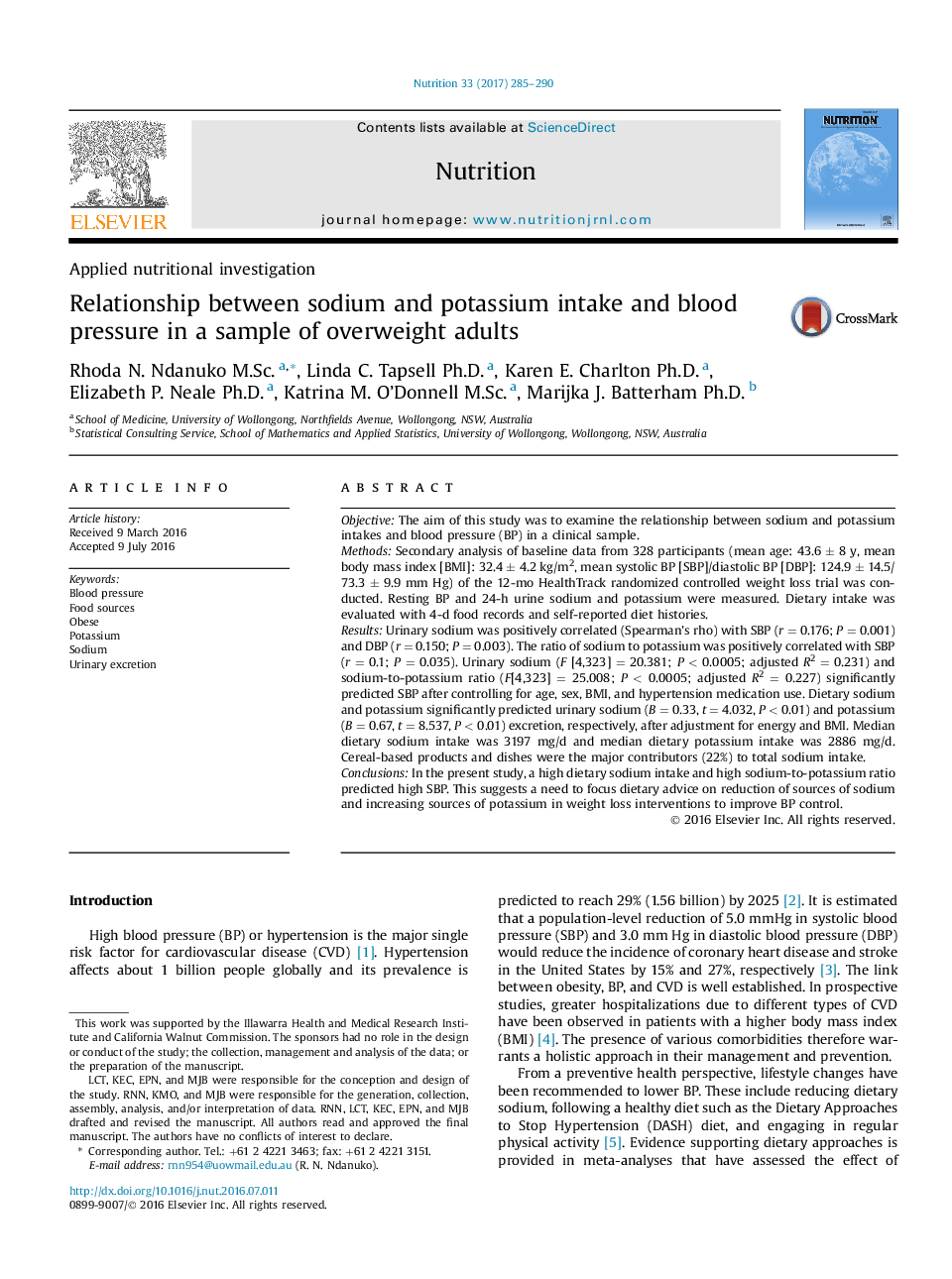| کد مقاله | کد نشریه | سال انتشار | مقاله انگلیسی | نسخه تمام متن |
|---|---|---|---|---|
| 5656955 | 1589664 | 2017 | 6 صفحه PDF | دانلود رایگان |
- High blood pressure (BP) is associated with high-sodium and low-potassium diets.
- Sodium intake was positively associated with systolic BP in a clinical population.
- The sodium-to-potassium ratio also positively correlated with systolic BP.
- Major food sources of sodium were cereal-based products and dishes.
- Vegetable products and dishes were the major sources of dietary potassium.
ObjectiveThe aim of this study was to examine the relationship between sodium and potassium intakes and blood pressure (BP) in a clinical sample.MethodsSecondary analysis of baseline data from 328 participants (mean age: 43.6 ± 8 y, mean body mass index [BMI]: 32.4 ± 4.2 kg/m2, mean systolic BP [SBP]/diastolic BP [DBP]: 124.9 ± 14.5/73.3 ± 9.9 mm Hg) of the 12-mo HealthTrack randomized controlled weight loss trial was conducted. Resting BP and 24-h urine sodium and potassium were measured. Dietary intake was evaluated with 4-d food records and self-reported diet histories.ResultsUrinary sodium was positively correlated (Spearman's rho) with SBP (r = 0.176; P = 0.001) and DBP (r = 0.150; P = 0.003). The ratio of sodium to potassium was positively correlated with SBP (r = 0.1; P = 0.035). Urinary sodium (F [4,323] = 20.381; P < 0.0005; adjusted R2 = 0.231) and sodium-to-potassium ratio (F[4,323] = 25.008; P < 0.0005; adjusted R2 = 0.227) significantly predicted SBP after controlling for age, sex, BMI, and hypertension medication use. Dietary sodium and potassium significantly predicted urinary sodium (B = 0.33, t = 4.032, P < 0.01) and potassium (B = 0.67, t = 8.537, P < 0.01) excretion, respectively, after adjustment for energy and BMI. Median dietary sodium intake was 3197 mg/d and median dietary potassium intake was 2886 mg/d. Cereal-based products and dishes were the major contributors (22%) to total sodium intake.ConclusionsIn the present study, a high dietary sodium intake and high sodium-to-potassium ratio predicted high SBP. This suggests a need to focus dietary advice on reduction of sources of sodium and increasing sources of potassium in weight loss interventions to improve BP control.
Journal: Nutrition - Volume 33, January 2017, Pages 285-290
